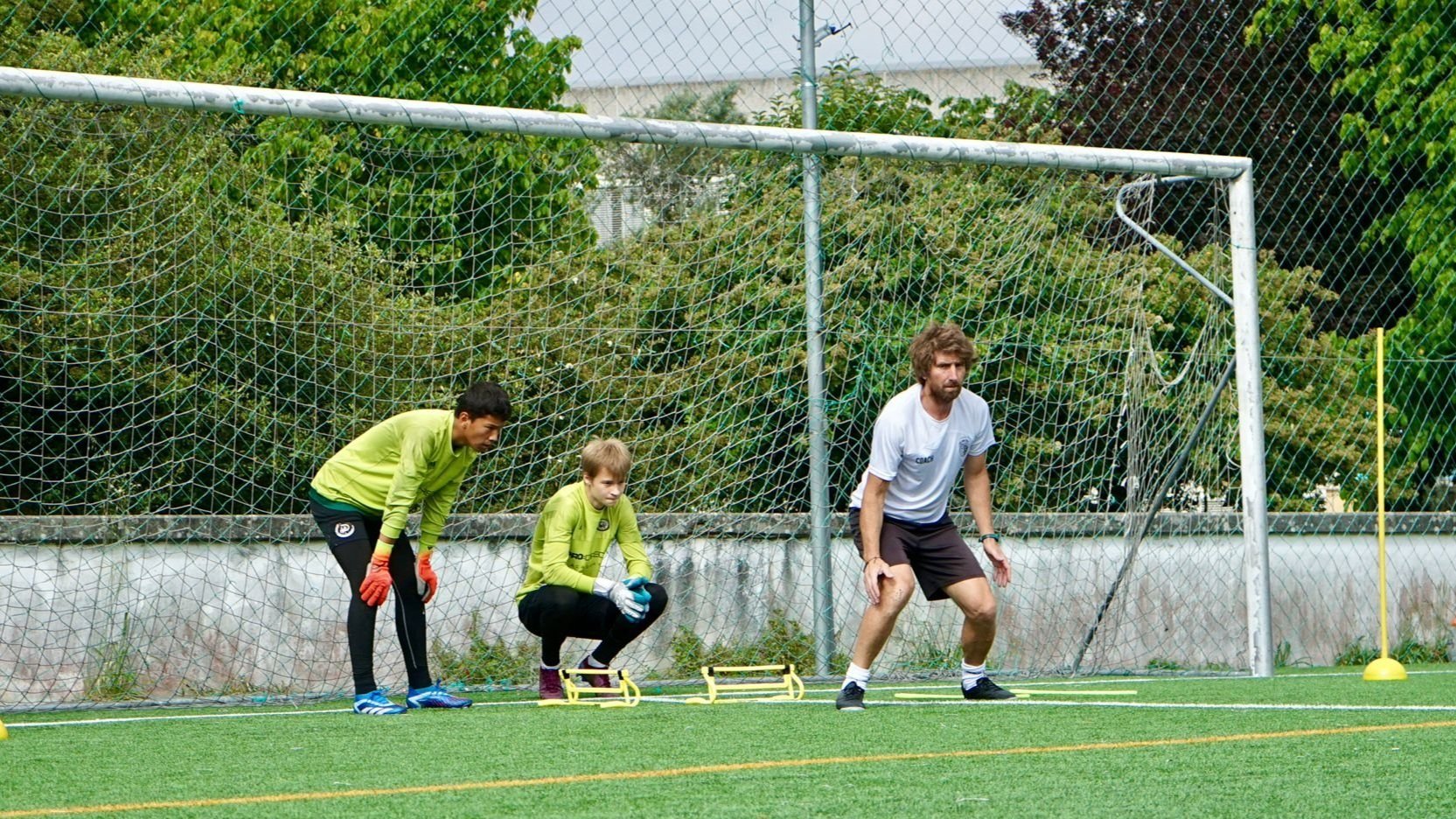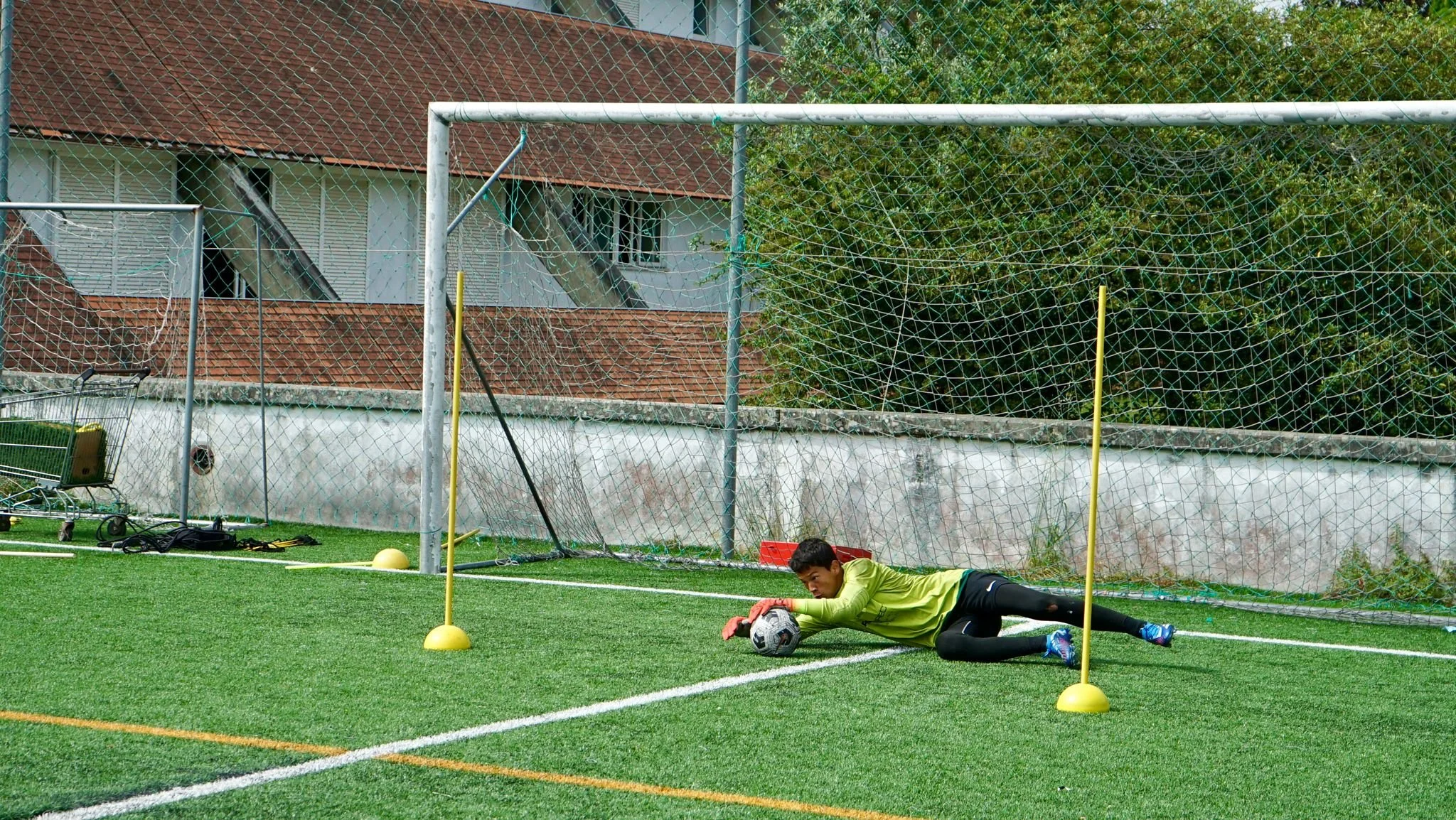
Goalkeeper trainings
Why Goalkeeper trainings?
-
Specialized Role
Goalkeepers have unique responsibilities that require focused, position-specific training.
-
Improve Reaction Time
Drills enhance reflexes for handling close-range shots and quick movements.
-
Master Positioning
Learn proper positioning to cover the goal and reduce shooting angles effectively.
-
Develop Diving Techniques
Training ensures safe, effective, and confident diving to reach difficult shots.
-
Enhance Hand-Eye Coordination
Exercises target precise coordination to catch or deflect fast-moving balls.
-
Build Confidence Under Pressure
Simulated scenarios help goalkeepers remain calm and composed in critical moments.
-
Improve Communication Skills
Emphasizes vocal leadership to organize and direct the defense.
-
Focus on Ball Distribution
Teaches accurate throws, kicks, and passes to initiate attacks from the back.
-
Strengthen Mental Toughness
Builds resilience and focus to handle mistakes and stay concentrated throughout games.
-
Handle Set Pieces
Specialized training for managing corners, free kicks, and penalty situations effectively.
-
Prevent Injuries
Proper techniques for diving, landing, and ball handling reduce the risk of injuries.
-
Adapt to Modern Football
Prepares goalkeepers for roles like "sweeper-keeper," handling balls outside the penalty area.
-
Personalized Development
Tailored training focuses on individual strengths and areas for improvement.
-
Boost Team Performance
A confident goalkeeper strengthens the defense and uplifts the entire team's performance.
-
Stay Competitive
Ensures goalkeepers meet the growing demands of modern football and remain at the top of their game.








✺ Frequently asked questions about
Goalkeeper Training✺
-
Goalkeepers have unique responsibilities that require specific skills, such as diving, positioning, and handling pressure. Specialized training ensures they excel in their role.
-
Yes, goalkeeper training is tailored for players of all levels, from beginners learning the basics to advanced players refining their techniques.
-
Training focuses on key areas such as reflexes, positioning, diving, shot-stopping, ball distribution, set-piece management, and communication with the defense.
-
For consistent improvement, goalkeepers should aim for at least 2–3 specialized training sessions per week, in addition to general team practices.
-
Yes, mental toughness is a crucial part of goalkeeper training, helping players stay focused, confident, and resilient under pressure.
-
Absolutely! Training emphasizes proper techniques for diving, landing, and ball handling to reduce the risk of common injuries.
"Goalkeeping is about being calm under pressure. Specialized training builds the confidence and mental toughness needed to excel in critical moments."
Gianluigi Buffon
"A goalkeeper's role goes beyond just saving shots. Training helps us master positioning, decision-making, and distribution, which are crucial in modern football."
Manuel Neuer
"Every save starts with preparation. Goalkeeper training sharpens our reflexes, positioning, and ability to read the game."
Alisson Becker


